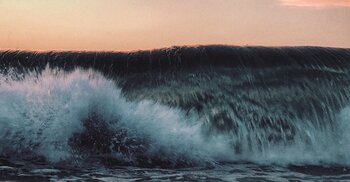December, 2023 - THE AFRA OAK: Court considers an owner’s right to rely on the negligent navigation defence when in breach of the charterer’s orders
In Mercuria Energy Trading PTE v Raphael Cotoner Investments LTD (The "Afra Oak”) 2023, the Commercial Court recently found in favour of the owner by allowing the error in navigation defence in Article IV(2)(a) of the Hague Rules to absolve the owner from liability in circumstances where, in breach of the charterer’s orders, the ship was detained by the Indonesian navy for anchoring and waiting in Indonesian territorial waters in breach of Indonesian law.
Facts
On 7th February, 2019 the charterer instructed the ship to “proceed to Spore EOPL for further orders. Discharging plan still not known yet”. The master proceeded to Singapore EOPL (Eastern Outer Port Limit) but anchored within Indonesian territorial waters, six nautical miles away from Indonesia. On 12th February, 2019, the ship and the master were arrested by the Indonesian navy and detained for a period of eight months.
Both the owner and the charterer advanced claims in arbitration. The owner claimed that (i) the ship had complied with the charterer’s orders by anchoring where she did, (ii) the ship was entitled under the United Nations Convention on the Law of the Sea 1982 (“UNCLOS”) and Indonesian law to anchor there and (iii) the charterer had breached the safe port/berth warranty as the anchorage was politically unsafe due to exposure to unlawful detention.
Dismissing the owner’s claims, the arbitration tribunal found that the ship was not entitled under UNCLOS to anchor in Indonesian waters, which was prohibited by Indonesian law. Furthermore, the charterer was not in breach of the safe port/place warranty. The order was a standard instruction for the area concerned and the master should have known of the risk of detention, which was avoidable by the exercise of good seamanship and navigation. The loss resulted from the master's decision to anchor in Indonesian waters, in contrast with the passage plan, and not the charterer’s order. The charterer’s order was found by the tribunal to require the ship “to wait in Singapore EOPL where you consider it safe to do so, using good navigation and seamanship". This had the effect of making it a requirement to use good navigation and seamanship as part of the order. Since the master could not, using good navigation and seamanship, wait in Indonesian waters, the tribunal considered that the order "precluded waiting in Indonesian waters".
However, while the owner’s claims were dismissed, the tribunal concluded that the owner was not liable for the charterer’s claim on the basis that the owner was permitted to rely on the negligent navigation defence at Article IV(2)(a) of the Hague Rules, which provides that the ship shall not be responsible for loss or damage arising from “(a) Act, neglect, or default of the master…in the navigation or in the management of the ship.”.
The appeal
The charterer appealed the arbitration award. The crucial question for the Commercial Court to consider was whether the Article IV(2)(a) defence applies when a ship, against the charterer’s orders, enters territorial waters and anchors there in violation of local law.
The court concluded that the applicability of the defence depends on the specific circumstances of each case. It rejected the charterer’s appeal, affirming the arbitration tribunal’s decision that the master had not demonstrated good seamanship and navigation. In this situation, the owner was entitled to invoke the defence at Section 4(2)(a) of the US Carriage of Goods by Sea Act 1936 (US COGSA), which mirrors Article IV(2)(a) of the Hague Rules.
In its judgment, the Commercial Court emphasised that an owner can benefit from the immunities in Article IV when the Hague Rules are incorporated into the charterparty. It distinguished this case from The Hill Harmony [2001] 1 AC 638, asserting that the negligent navigation defence applied here because the Master's decision to anchor was deemed an error in navigation, whereas in The Hill Harmony, there was no error of navigation or issue of seamanship.
Conclusion
Justice Teare concluded his judgment by stating "The answer to the question “Does Article IV(2)(a) of the Hague Rules provide a defence where, in breach of an order of its charterers, a vessel proceeds into territorial waters and waits at anchor there in breach of local law?" is: It may or may not do so depending upon the facts of the particular case.” The applicability of the defence is, therefore, very fact dependent. The facts in this particular case meant that as the cause of the ship’s detention was the master’s error in navigation and seamanship and not misinterpreted orders, the defence was triggered.
It is also relevant to note that although it was common practice for ships to wait in Indonesian waters near the EOPL prior to February 2019, the decision by the local authorities to enforce the laws governing their territorial waters increased the threat to ships in the area. It is, therefore, important for parties to undertake due diligence and ensure they are up to date on the latest local regulations and practices in the areas where they trade.
As always, if Members have any questions in relation to the above issues they are invited to contact the Club for further information.
